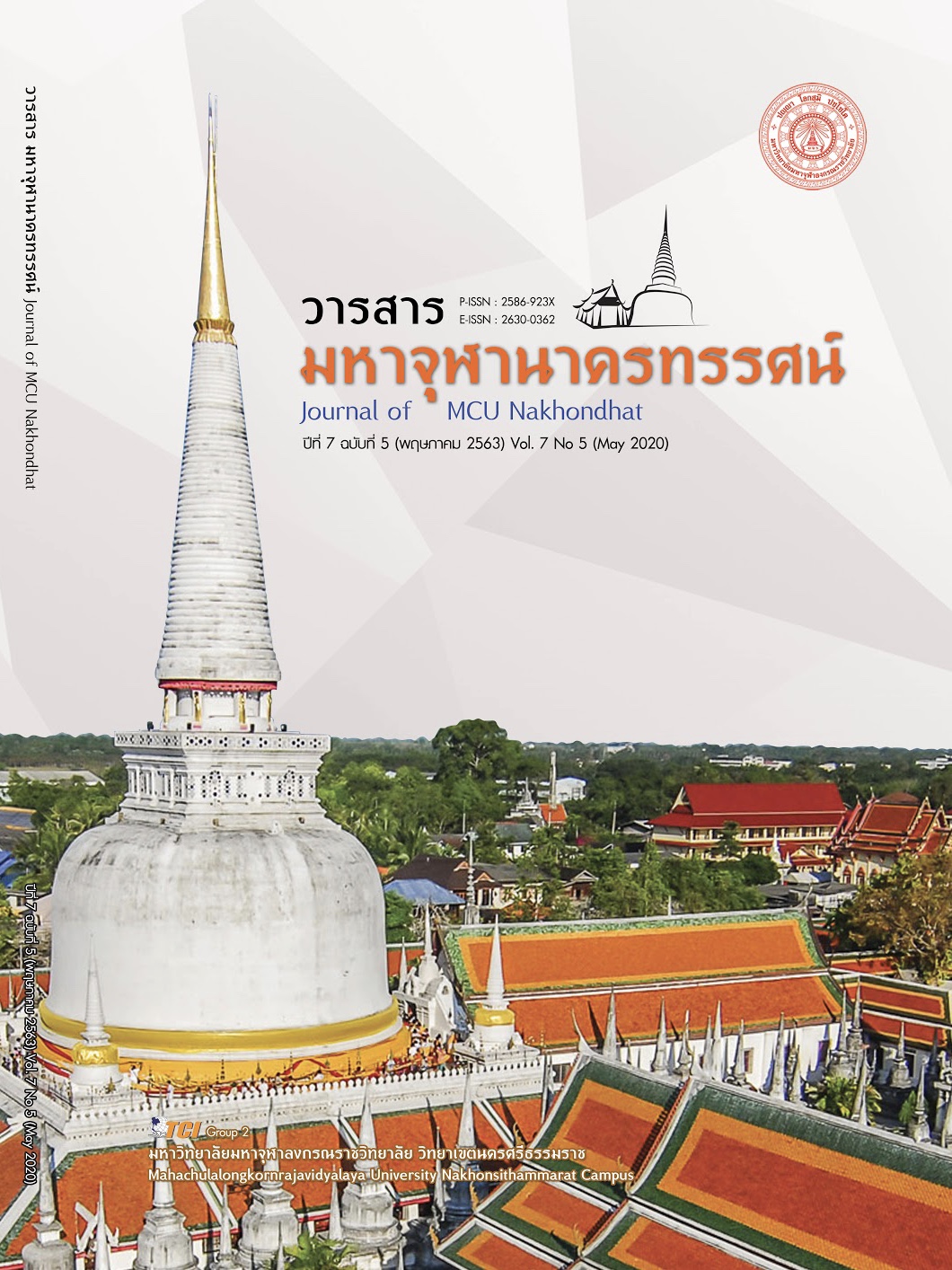THE DEVELOPMENT OF TEACHER EXPLICATION PROGRAMS IN LEARNING MANAGEMENT FOR PROMOTE STUDENTS’ CRITICAL THINKING IN NONG BUA LAMPHU PRIMARY EDUCATIONAL SERVICE AREA OFFICE 1
Main Article Content
Abstract
The purpose of this research were 1) to study the current and desirable conditions of teacher development to promote critical thinking of students in Nong Bua Lamphu Primary Educational Service Area Office1, 2) to develop a teacher explication program to promote critical thinking of students in Nong Bua Lamphu Primary Educational Service Area Office1. The sample group were teachers in basic education institutions consisting of 308 people. The research has been divided into 2 phases as follows: Phase 1 the study of current conditions and desirable conditions of teacher development to promote critical thinking of students by using the 5 experts. The collect data tools were questionnaires. Statistics used for data analysis were mean, standard deviation. Phase 2 developed teacher explication programs to promote critical thinking of students. Data provider group, the focus group and evaluation were organized by using the 5 experts. The tools for data collection were questionnaires. The statistical evaluation for data analysis were Mean, standard deviation.
The results were as followed: The results of the analysis of current conditions and desirable conditions of teacher development to promote critical thinking of students found that the current conditions overall was at a medium level. The highest mean was preparation and the desirable conditions was the proposal of problem situations. The development step of a teacher explication program to promote critical thinking of students consisting of 4 steps: 1) preparation 2) development 3) integration during work and 4) evaluation after the program development has been evaluated by experts. The results show that the program was overall suitable at the highest level and has the overall possibility at the highest level.
Article Details
References
เพ็ญพิศุทธิ์ เนคมานุรักษ์. (2537). การพัฒนารูปแบบพัฒนาการคิดอย่างมีวิจารณญาณสำหรับนักศึกษาครู. ใน วิทยานิพนธ์ครุศาสตรมหาบัณฑิต สาขาวิชาจิตวิทยาการศึกษา. จุฬาลงกรณ์มหาวิทยาลัย.
กระทรวงศึกษาธิการ. (2553). หลักสูตรแกนกลางการศึกษาขั้นพื้นฐาน พุทธศักราช 2551. กรุงเทพมหานคร: โรงพิมพ์ชุมนุมสหกรณ์การเกษตรแห่งประเทศไทย จำกัด.
ลิขิต ธีรเวคิน. (2556). การปรับตัวของประเทศไทยในยุคโลกาภิวัตน์เอเชียรุงโรจน์และประชาคมเศรษฐกิจอาเซียน. วารสารราชบัณฑิตยสถาน, 38(2), 23-46.
สิทธิพล อาจอินทร์. (2550). การพัฒนาทักษะการสอนคิดอย่างมีวิจารณญาณของครูวิทยาศาสตร์ประถมศึกษา. วารสารวิจัยมหาวิทยาลัยขอนแก่น, 7(3), 22-25.
สุคนธ์ สินธพานนท์. (2553). นวัตกรรมการเรียนการสอน. กรุงเทพมหานคร: 9119 เทคนิค พริ้นติ้ง.
อรัญญา โสมนัส. (2552). ปัจจัยที่ส่งผลต่อคุณภาพมาตรฐานด้านผู้เรียน การคิดวิเคราะห์และวิจารณญาณของสถานศึกษาที่ได้รับการประเมินจากภายนอกรอบที่ 2 สังกัดสำนักงานเขตพื้นที่การศึกษาขอนแก่น เขต 5. ใน วิทยานิพนธ์ศึกษาศาสตรมหาบัณฑิต สาขาวิชาบริหารการศึกษา. มหาวิทยาลัยขอนแก่น.
Krejeie, R.V. & Morgan, D.W. (1970). Determining sample size for research activities. Educational and Psychological Measurement, 30(3), 607-610.


